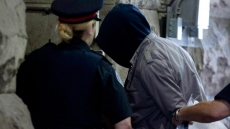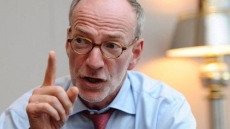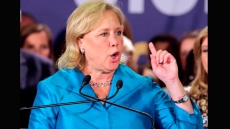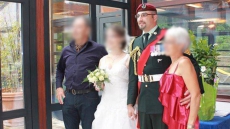OTTAWA — An Ottawa sociology professor is a big step closer to being extradited to France for questioning about the 1980 bombing of a Paris synagogue.
The Supreme Court of Canada said Thursday it would not hear the appeal of Hassan Diab, wanted by French authorities in the decades-old terrorism case.
In keeping with standard practice, the Supreme Court gave no reason for its decision.
Diab's lawyer, Donald Bayne, planned to hold a news conference on Parliament Hill later in the day.
In submissions to the high court, Bayne said it was time to settle key legal questions about the use of unproven intelligence in a criminal prosecution.
He argued that France's reliance on secret information raises basic issues of constitutionality and procedural fairness.
Another key element of the case is the reliability of evidence that has been revealed to date — particularly handwriting on a hotel registration card allegedly penned by Diab.
The Canadian government said Diab's request for a Supreme Court hearing raised no issue of public importance and should be dismissed.
French authorities suspect Diab, 60, was involved in the anti-Semitic bombing 34 years ago that killed four people and injured dozens of others — an accusation he denies.
Diab is now subject to "immediate removal," said Clarissa Lamb, a spokeswoman for Justice Minister Peter MacKay. Under the Extradition Act, Canada has 45 days to send Diab to France, she noted.
Pursuant to the Canada-France extradition treaty, France is responsible for organizing and executing the surrender of someone once their extradition from Canada has been ordered and confirmed by the courts.
The Justice Department's international assistance group is in discussions with the French to ensure Diab's removal takes place within the deadline, Lamb added.
Although he appears bound for France, it is not certain that Diab will face trial there. Still, Diab's supporters say a Supreme Court hearing would have been his last real chance for justice in Canada.
This country has a responsibility to ensure that Charter of Rights guarantees are protected, no matter who has suspicions of wrongdoing, said Emily McMurtry, one of Diab's former students at Carleton University in Ottawa.
"It's a larger, fundamental issue of justice for Canadians as a whole," she said Thursday outside the Supreme Court building, where she endured chilly winds to lend moral support to Diab's cause.
"I think it's something that every last Canadian should be concerned about."
Diab has garnered the backing of prominent people including former federal solicitor general Warren Allmand, linguistics professor and activist Noam Chomsky, and Sharry Aiken, associate dean of law at Queen's University in Kingston, Ont.
The RCMP arrested Diab, a Canadian of Lebanese descent, in November 2008 in response to a request by France.
In June 2011, Ontario Superior Court Justice Robert Maranger committed Diab for extradition despite acknowledging the case against him was weak.
The following April, then-justice minister Rob Nicholson signed an extradition order surrendering Diab to France.
The Ontario Court of Appeal upheld the decisions of the lower court and the minister, prompting Diab's counsel to ask the Supreme Court to hear the case.
"There can be no debate that the concerns raised about the use of intelligence in terrorism trials are pressing ones demanding serious consideration," said the filing.
"Canadians deserve that this issue be addressed head-on."
In its submission to the Supreme Court, the federal government said Diab's concerns about untested intelligence amounted to an argument that he would not get a fair trial in France. But the high court has already said that trial fairness in the requesting state shouldn't be lightly questioned, the government noted.
"Surrender should only be refused owing to trial fairness concerns if it is demonstrated that the criminal laws or procedures in the requesting state shock the Canadian conscience," said the federal brief.





